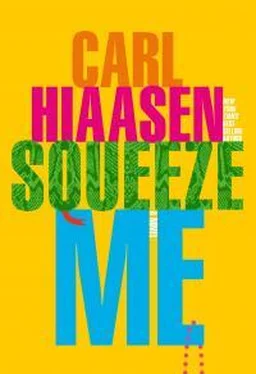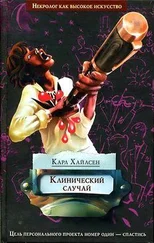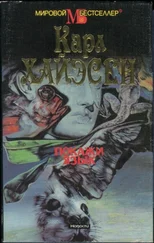“Can you drag it ASAP?” the caretaker said. “We’ve got another event tonight.”
The officers explained that the body of water was too small and inaccessible for a full-on dragging operation, which required motorboats. Shore divers were summoned instead. Groping through the brown muck and fish waste, they recovered numerous algae-covered champagne bottles, the rusty keys to a 1967 Coupe de Ville, and a single size-5 Louis Vuitton cross-pump, which the McMarmots somberly identified as the property of their missing friend.
Yet the corpse of Kiki Pew Fitzsimmons wasn’t found, which perplexed the police due to the confined location. The sergeant on scene asked Mauricio, the supervisor of the Lipid House groundskeepers, to continue watching the pond for a floater.
“Okay. Then what?” Mauricio said with a frown.
—
Katherine Sparling Pew began wintering in Palm Beach as a teenager. She was the eldest granddaughter of Dallas Austin Pew, of the aerosol Pews, who owned a four-acre spread on the island’s north end.
It was there, at a sun-drenched party benefiting squamous-cell research, that Katherine met her first husband. His name was Huff Cornbright, of the antifreeze and real-estate Cornbrights, and he proposed on their third date. They were married on Gibson Beach at Sagaponack, Long Island, where the Pew family convened every summer with tenuously managed rancor. Th e New York Times chronicled the Cornbright-Pew wedding with six colorless paragraphs and a scrapbook-worthy photograph of the joyful couple. Katherine used the occasion to unveil her chipper new nickname, a custom among post-debutante women of a certain upbringing.
Huff and Kiki Pew Cornbright settled in Westchester County, producing two trendily promiscuous offspring who made decent grades and therefore needed only six-figure donations from their parents to secure admission to their desired Ivies. The family was jolted when, at age fifty-three, Huff Cornbright perished on an autumn steelhead trip to British Columbia. Swept downstream while wading the Dean River, he foolishly clung to his twelve-hundred-dollar fly rod rather than reach for a low-hanging branch and haul himself to safety.
Kiki Pew unloaded the Westchester house but kept the places she and Huff had renovated in Cape Cod and Palm Beach. His ample life-insurance policy paid off both mortgages, which had outlived their usefulness as tax deductions. Meanwhile, the Cornbrights’ now-grown sons had found suitable East Coast spouses to help liquefy their trust funds, freeing Kiki Pew to spread her wings without feeling the constant eye of filial judgment. She waited nearly one full year before seducing her Romanian tennis instructor, two years before officially dating eligible men her age, and four years to re-marry.
The man she chose was Mott Fitzsimmons, of the asbestos and textile Fitzsimmonses. A decade earlier he’d lost his first wife to an embolism while parasailing at Grand Cayman. Among prowling Palm Beach widows Mott was viewed as a prime catch because he was childless, which meant less holiday drama and no generational drain on his fortune.
He was lanky, silver-haired, seasonally Catholic and steeply neo-conservative. It was Kiki Pew’s commiserative coddling that got him through the Obama years, though at times she feared that her excitable spouse might physically succumb from the day-to-day stress of having a black man in the Oval Office. What ultimately killed Mott Fitzsimmons was nonpartisan liver cancer, brought on by a stupendous lifetime intake of malt scotch.
Kiki Pew was consoled by the fact that her husband lived long enough to relish the election of a new president who was reliably white, old and scornful of social reforms. After Mott’s death, with his croaky tirades still ringing in her bejeweled ears, Kiki Pew decided to join the POTUS Pussies, a group of Palm Beach women who proclaimed brassy loyalty to the new, crude-spoken commander-in-chief. For media purposes they had to tone down their name or risk being snubbed by the island’s PG-rated social sheet, so in public they referred to themselves as the Potussies. Often they were invited to dine at Casa Bellicosa, the Winter White House, while the President was in residence. He always made a point of waving from the buffet line or pastry table. During the pandemic lockdown, he even Zoom-bombed the women during one of their cocktail-hour teleconferences.
News of Kiki Pew’s disappearance at the IBS gala swept through the Potussies faster than a blast sales alert from Saks. The group’s co-founder—Fay Alex Riptoad, of the compost and iron ore Riptoads—immediately dialed the private cell phone of the police chief, Jerry Crosby, who assured her that no resources would be spared in the effort to solve the case.
“We’ve already issued a Missing Persons bulletin to the media,” the chief said. “I asked the state to do a Silver Alert, but—”
“Anybody can get a Silver Alert, even on the mainland,” Fay Alex sniffed. “Isn’t there a premium version for people like us? A Platinum Alert, something like that?”
“Silver is the highest priority, Mrs. Riptoad. However, it’s only for seniors who go missing in vehicles.” Crosby had learned the hard way never to use the term “elderly” when speaking with the Palm Beach citizenry. “Since Mrs. Fitzsimmons wasn’t driving the other night, the best they can do is a Missing Persons bulletin.”
Fay Alex said, “You didn’t give out her real age to the media, did you? There’s no call for that. And which picture of her did you post?”
“We’re required to list the age provided by her family. One of her sons sent us a photo from a family gathering on Christmas Day.”
“A morning picture? Oh, dear God.” Fay Alex groaned; noon was the absolute earliest that Kiki Pew allowed herself to be seen by civilians.
When the police chief inquired if Mrs. Fitzsimmons was known to use psychoactive drugs, Fay Alex threatened to have him sacked.
“How can you even ask such a vicious question?” she cried.
“A pill was found among your friend’s belongings, next to the fish pond. Actually, part of a pill. Our expert says it was bitten in half.”
“For heaven’s sake, Kiki was on blood-pressure meds. Who isn’t! She kept hers in a cute little Altoids tin.”
The chief said, “The fragment we found wasn’t high-blood pressure medicine. It was MDMA.”
“What in the world are you talking about?”
“On the street they call it Ecstasy, Mrs. Riptoad.”
“Ecstasy!” she yipped. “That’s the most ludicrous thing I’ve ever heard. Kiki Pew, of all the girls, wouldn’t have a clue where to get something like that.”
In fact, Kiki Pew Fitzsimmons knew exactly where to get something like that—from her tennis pro, with whom she had resumed bi-weekly lessons soon after Mott passed away. Kiki enjoyed the MDMA high, which lasted for hours and kept her energized even after too many drinks. She had come to believe that the pill gave her a strategic edge at posh island functions, where most attendees began to fade and ramble by nine-thirty, ten at the latest.
“One bad side effect of the drug,” Jerry Crosby explained to Fay Alex Riptoad, “is a sensation of overheating. Users tend to feel hot and sweaty even when it’s chilly outdoors. That might explain why Mrs. Fitzsimmons went into the water—to cool off.”
“Then where’s the body? I seriously doubt the koi ate her.”
“The pond is very murky. It’s possible our divers couldn’t see her under the surface. We’ll know for sure in a day or two, when…well, we’ll know.”
“Kiki Pew is not a druggie,” Fay Alex re-asserted, “and I won’t listen to another word of this insulting rubbish. Here’s a radical idea, Jerry: Just do your fucking job. Find her!”
Читать дальше












